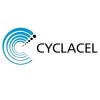
Clinical Study of Hospital-manufactured CD19 CAR-T in Children and Adolescents With Acute Lymphoblastic...
B-cell Acute Lymphoblastic LeukemiaChimeric antigen receptor T cells (CAR-T cells) have been developed to treat relapsed and refractory hematological malignancies with promising outcome in patients with very poor prognosis. The purpose of this clinical study is to produce the CD19[cluster of differentiation antigen 19] CAR-T (SNUH-CD19-CAR-T) at the investigational site and to evaluate safety and efficacy of SNUH-CD19-CAR-T in children and adolescent with relapsed/refractory B-cell acute lymphoblastic leukemia.

AB8939 in Patients With Relapsed/Refractory Acute Myeloid Leukemia
Acute Myeloid Leukemia RefractoryAcute Myeloid Leukemia2 moreThe primary objective is to define the safety and tolerability of AB8939 in patients with AML by determining the dose-limiting toxicities, the maximum tolerated dose, and the recommended dose for dose expansion study.

Venetoclax+HMA+Aclarubicin Versus Venetoclax+HMA in Treatment-Naive Elderly Patients With AML
Acute Myeloid LeukemiaThis research is being done to assess the therapeutic efficacy and safety of a promising regimen (Venetoclax combined with Decitabine/Azacitidine and Aclarubicin) versus Venetoclax combined with Decitabine/Azacitidine in treatment-naive elderly patients with Acute Myeloid Leukemia. This study involves the following: Venetoclax, Decitabine/Azacitidine, Aclarubicin (investigational combination) Venetoclax and Decitabine/Azacitidine (per standard of care)

A Study to Investigate the Efficacy and Safety of MS-553 in CLL/SLL
Lymphocytic LeukemiaSmall Lymphocytic LymphomaThis is a Phase I/II, single arm, multi-center, open-label clinical trial of MS-553 in patients with CLL/SLL whose disease relapsed after or was refractory to at lease 1 prior therapy (chemotherapy and/or targeted drug therapy, which must include BTK inhibitor therapy) and who are indicated for treatment per IWCLL2018.

A Study to Investigate Fadraciclib (CYC065), in Subjects With Leukemia or Myelodysplastic Syndrome...
LeukemiaMyelodysplastic Syndrome(MDS)This is a 2-part, phase 1/2, open-label, multicenter study designed to evaluate the safety and efficacy of fadraciclib (formerly CYC065) administered orally BID. This study consists of Phase 1 and Phase 2 components in subjects with Leukemia or Myelodysplastic syndrome (MDS) who have progressed despite having standard therapy or for which no standard therapy exists.

Highest Dose of Uproleselan in Combination With Fludarabine and Cytarabine for Patients With Acute...
Acute Myeloid Leukemia Post Cytotoxic TherapyDown Syndrome7 moreThis phase I trial tests the safety, side effects, and best dose of uproleselan in combination with fludarabine and cytarabine in treating patients with acute myeloid leukemia, myelodysplastic syndrome or mixed phenotype acute leukemia that has come back (relapsed) or does not respond to treatment (refractory) and that expresses E-selectin ligand on the cell membrane. Uproleselan binds to E-selectin expressed on endothelial cells of the bone marrow and prevents their interaction with selectin-E ligand-expressing cancer cells. This may prevent leukemia cells from being sequestered in the bone marrow niche and escaping the effect of chemotherapy. Chemotherapy drugs, such as fludarabine and cytarabine, work in different ways to stop the growth of cancer cells, either by killing the cells, by stopping them from dividing, or by stopping them from spreading. Giving uproleselan in combination with fludarabine and cytarabine may enhance their activity.

Asciminib as Initial Therapy for Patients With Chronic Myeloid Leukemia in Chronic Phase
Chronic Myeloid LeukemiaChronic Phase5 moreThis study is a multicenter Phase 2, non-randomized, open-label single-group frontline study administering asciminib in patients with newly diagnosed Chronic Myeloid Leukemia-Chronic Phase (CML-CP). The aim of this study is to evaluate the efficacy and safety of asciminib in newly diagnosed CML-CP. Patients will receive asciminib orally once daily. Response is determined by PCR (polymerase chain reaction) blood test during the study. Patients who have not achieved a response after 24 months (but no later than 36 months) of single agent asciminib will be offered the addition of a low dose tyrosine kinase inhibitor (low-TKI) namely dasatinib, imatinib, or nilotinib at the investigator's discretion. The following doses of the TKIs will be used: Dasatinib 50 mg daily Imatinib 300 mg daily Nilotinib 300 mg daily Patients will discontinue study treatment if they experience disease progression, or unacceptable toxicity.

Study of APG-2575 in Patients With Relapsed/Refractory CLL/SLL
Chronic Lymphocytic LeukemiaSmall Lymphocytic LymphomaThe purpose of this study is to assess the efficacy and safety of APG-2575 single agent in patients with relapsed/refractory CLL/SLL.

Venetoclax Based Regimen for R/R T-ALL
Acute T-Lymphocytic LeukemiaThis study is to investigate the therapeutic efficacy and side effect of venetoclax based regimen for relapsed or refractroy T cell acute lymphoblastic leukemia.

A Study of IMM01 Combined With Azacitidine in Patients With Acute Myeloid Leukemia and Myelodysplastic...
Acute Myeloid LeukemiaMyelodysplastic SyndromesThis trial is an open-lable , multi-center, Phase 1/Phase 2 study that will evaluate the safety, tolerability, Pharmacokinetics, Pharmacodynamics and and immunogenicity of IMM01 combined with Azacitidine in patients with Acute Myeloid Leukemia (AML) and Myelodysplastic Syndrome (MDS).
